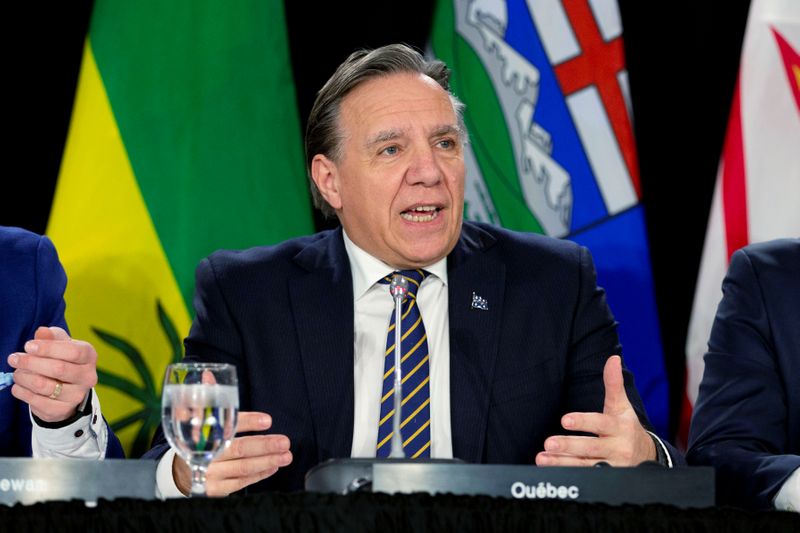By Allison Lampert and Mahad Arale
MONTREAL/TORONTO (Reuters) - Quebec on Monday ordered new restrictions on bars and restaurants in coronavirus hot spots, while Ontario's premier warned of a "more complex" second wave, as Canada's two most-populous provinces saw big increases in COVID-19 cases.
Quebec, the Canadian province hit hardest by the novel coronavirus, will curb social gatherings in homes and limit bar and restaurant service to takeout for 28 days in Montreal and two other regions, Premier Francois Legault said. It reported 750 new coronavirus cases on Monday.
"It's time to take action," Legault told reporters in Montreal. "The situation is at the limit."
The restrictions, which start on Thursday in the three regions, will not close businesses or schools.
But Legault introduced restrictions like allowing only people living at the same address to be there at the same time. Libraries, movie theaters and museums will close and protesters will have to wear masks during demonstrations, he said.
Earlier on Monday, Ontario, Canada's most-populous province, reported a new daily high of 700 cases, with a bit more than a day's worth of samples still pending at labs. The number of patients in hospital was also rising steadily, reaching 128, data showed.
"We know that this wave will be more complicated, more complex, it will be worse than the first wave we faced earlier this year," Ontario Premier Doug Ford told reporters in Toronto.
The Ontario Hospital Association called on the province to bring back restrictions in some regions on indoor dining and bars, places of worship, weddings, gyms and other non-essential businesses.
Canada garnered praise earlier this month after it reported zero coronavirus deaths for the first time since March. But health officials are now warning that some local authorities could be overwhelmed unless the wave of infections is curbed.
In Alberta, where cases have also been rising, the provincial government postponed dozens of surgeries and imposed visiting restrictions at a Calgary hospital because of an outbreak. Twenty-six patients and 27 staff have confirmed infections and more than 100 staffers are in isolation. Four patients have died.

Overall, cases in Canada rose by 1,454 to 153,125, while six more deaths took the total to 9,268, according to data released on Sunday.
